Combating ableism and fostering social resilience: Perspectives of blind youth.
Gagan Chhabra works as a professor in Special Needs Education at Inland Norway university of applied sciences.

I denne keynoten vil jeg diskutere problemet med en viktig “attitudinal” barriere, som “abelism”. Keynoten skal gi innsikt i hva som er “abelism”, hvor man finner “abelism” og hvordan man kan bekjempe det. Keynoten vil også fokusere på motstandskraften, demonstrasjonen av blinde og synshemmede ungdommer for å bekjempe “abelism” i arbeidsmarkedet og samfunnet i Norge. Keynoten vil synliggjøre erfaringene til blinde og synshemmede ungdommer, og vil synliggjøre de individuelle og institusjonelle faktorene som vil bidra til å fremme motstandskraft og bekjempe “abelism” i Norge.
This keynote will discuss the issue of an important “attitudinal” barrier, such as “ableism.” The keynote will provide insights into what “ableism” is, where it can be found, and how it can be fought. It will also focus on the resilience and advocacy of blind and visually impaired youth in combating “ableism” in the labor market and society in Norway. The keynote will highlight the experiences of blind and visually impaired young people and shed light on the individual and institutional factors that contribute to promoting resilience and fighting “ableism” in Norway.
AI and Vision: Navigating New Territory
Rasmus Paasch is an ICT and Digital Accessibility Consultant at The Danish Institute for Visual Impairment (IBOS). He has a special interest in generative artificial intelligence, web accessibility and VR/AR in the field of vision, where he works to develop new possibilities for people with visual impairment.

Artificial Intelligence (AI) is increasingly being integrated into our daily lives, opening new possibilities in vision pedagogy and support. This keynote explores, based on the latest published research and practice, how we as vision professionals can approach the potential of AI technologies in working with people with visual impairment or blindness.
Through a combination of research-based insights and practical examples, the presentation illuminates opportunities and challenges in implementing AI tools in daily practice. We examine technology’s potential for breaking down barriers and strengthening social participation, while maintaining a critical perspective on the balance between technological assistance and personal development. Special emphasis is placed on ethical considerations and the importance of individual considerations when encountering new technological solutions.
The presentation draws on the latest published research and practice, highlighting various aspects of AI technology’s impact on vision pedagogical practice. We explore the new professional perspectives that technology opens for vision professionals and discuss how we can develop a practice that balances technological possibilities with ethical responsibility.
The keynote is relevant for all vision professionals working with people with visual impairment or blindness, regardless of age group and area of specialization.
Speaking Outline
- AI in Vision Support Today
- Real-World Examples
- Professional Practice
- Looking Ahead
- Discussion
Visual impairment and mental health – research and clinical experience
Marianne Bang Hansen, Clinical psychologist, PhD
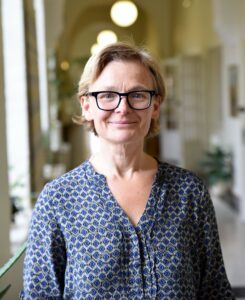
Norwegian National Unit for Hearing and Visual Impairment and Mental Health is an outpatient clinic at Oslo University Hospital in Norway. At our outpatient clinic, we treat patients with mental disorders and sensory loss. We have over the last few years worked to expand our range of services to include visually impaired people with mental health problems.
The scope of my speech is both from a clinical and research perspective on vision and mental health; about the specifics of being visually impaired when it comes to mental health and the development of – and treatment of mental disorders. I discuss why it is necessary to have a specialized clinic in mental health care service for individuals with visual impairment and mental health issues.
From 2013 to 2018, I participated an EU-funded research project on visual impairment and mental health. In this project, we interviewed 732 visual impaired individuals (in Norway) about mental health. Research topics include depression and anxiety, bullying, sexual abuse, loneliness, serious life events, social relationships and coping.
Findings from our research and clinical experience from our work with visual impairment and mental health will be addressed.
Education for all? The reality of blind students in higher education
Randi Elisabeth Hagen, Senior Advicer, Høgskolen i Innlandet
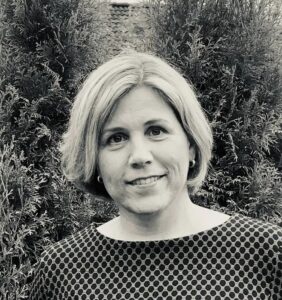
This keynote presentation critically examines the discrepancy between the Norwegian government’s commitment to digital accessibility/universal design and the digital barriers faced by blind students in higher education. Although legislation requires learning environments to be accessible and inclusive, many blind students still face significant challenges. This presentation will draw on research data, interviews with blind students /former students and university staff, as well as an analysis of digital learning platforms, to highlight the gap between policy and practice.
Moflata School – How have we built our capacity from scratch to where we are today
Fredrik Mydske Nilsen (rektor), Kine Saga og Tonje Gurholt Elvenes (kontaktlærere)
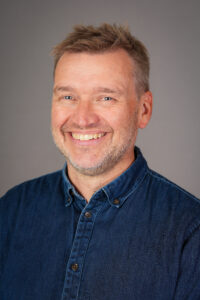
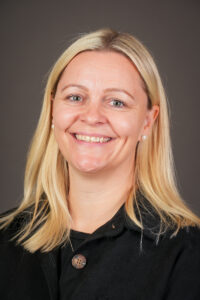
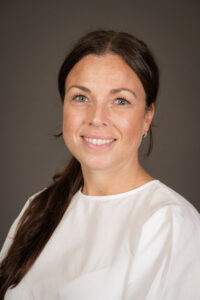
Moflata school is a primary school in Skien with 450 pupils. In August 2019, we received our first pupil with visual challenges. We will tell you a little about the journey we have been on.
Moflata School – How have we built our capacity from scratch to where we are today:
- What kind of mindset characterizes our school, what kind of culture is the foundation, and what kind of view on pupils do we want to have?
- How have we bulit competence among key individuals?
- How have we built competence among the entire staff?
- How have we worked to involve other parts of the municipality
- How do we collaborate with the PPT (Educational Psychological Counseling), Statped, NAV, etc.?
- Concrete practices and reflections from two classrooms – where do we succeed? Where do we fail?
Coping life with severe illness in family
Øyvind Blindheim, father, Norway
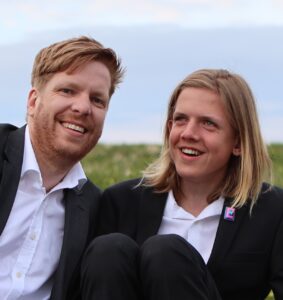
I will tell the story about my family of four finding our way in the darkness after my seven year old son, Syver, suddenly had to face rapid vision loss, later explained by the severe and incurable disease JNCL (Batten disease).
JNCL will gradually give multiple severe symptoms, vision loss one of them. Lately we have focused on the gradually lack of cognition children with this disease experiences, fronting childhood dementia as a collective term. Childhood dementia is not well known, and by sharing our story we hope to change that. Even though rare diseases are rare when we look at them individually, rare diseases are not that rare grouped together. We believe there is much to gain, both as a professional and relative of illness, by broaden the perspective when we look at neurodegenerative diseases that effect both physical and psychological traits. Cognitive decline in children needs to be addressed and talked about if we want to be able to develop treatments and ultimately a cure for the affected families.
Coping life with severe illness, shortened life expectancy and the anticipatory grief which we all are experiencing, calls for cooperation between multiple professions to achieve good quality of life. My family’s journey has been well accompanied and supported by professionals, helping us in both finding and creating light in the demanding situation we were forced to handle. I will talk about some of them, and how their contribution helped navigate within the darkness the disease brought to our lives. I will also talk about how our gradually increasing openness gave us the opportunity to educate people, both locally and nationally, and give examples of how our opportunity oriented lifestyle raise our quality of life.
